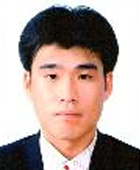
FOM 기반 PCB 생산 공장의 KPI 향상을 위한 What-IF 시뮬레이션 모델 개발 및 적용에 관한 연구
Abstract
This study aims to improve the KPIs of manufacturing plants by benchmarking an FOM model. This involves designing a scheduling algorithm for the shop floor; developing and testing a simulation model that reflects information such as equipment, orders, and process times identical to those of the factory; and selecting a scheduling algorithm that is appropriate for the factory. To this end, we designed the architecture (framework) of the information exchange and performance evaluation process between the MES, what-if simulator, production operation information, KPI, rule tuning, and advanced planning and scheduling (APS), targeting factories of domestic PCB manufacturers. Consequently, several scheduling methodologies were found, which improved the KPIs (lead time, tardiness, equipment utilization, and productivity) compared to the scheduling methodologies currently used in the process.
Keywords:
FOM(smart-factory operation management), What-If simulator, KPI(key performance indicator), SchedulingAcknowledgments
본 연구는 2024학년도 경기대학교 학술연구비(일반연구과제) 지원에 의하여 수행되었음. This work was supported by Kyonggi University Research Grant 2024.
References
- Kim. S. Y., 2018, A Case Study of the Introduction of Smart Factory Operation Management(FOM) in the Fourth Industrial Revolution Era, Korean Association of Computers and Accounting, 16:1 43-62.
- Kim, S. Y., 2015, Study of Digital Factory FOM Solution on Software-based : Applied Case to Heat-Treatment Company, Korean Institute of Industrial Engineers Spring Joint Conf., 2855-2863.
-
Ko, D. B., Park, J. M., 2018, A Study on the Visualization of Facility Data Using Manufacturing Data Collection Standard, The Journal of The Institute of Internet, Broadcasting and Communication, 18:3 159-166.
[https://doi.org/10.7236/JIIBC.2018.18.3.159]

-
Park, T. K., Im, S. J., Kang, Y. S., Noh, S. D., 2019, Service-oriented Platform for Smart Operation of Dyeing and Finishing Industry, Int. J. Comput. Integr. Manuf., 32:3 307-326.
[https://doi.org/10.1080/0951192X.2019.1572225]

-
Suri, K., Cadavid, J., Alferez, M., Dhouib, S., Tucci-Piergiovannil, S., 2017, Modeling Business Motivation and Underlying Processes for Rami 4.0-aligned cyber-physical Production Systems, 22nd IEEE International Conference on Emerging Technologies and Factory Automation (ETFA), 1-6.
[https://doi.org/10.1109/ETFA.2017.8247702]

-
Kim, J. H., Kim, S. Y., 2021, Productivity Analysis Method based on Manufacturing Big-data using the FOM System in the FOMs Package, J. Korean Soc. Manuf. Technol. Eng., 30:4 259-268.
[https://doi.org/10.7735/ksmte.2021.30.4.259]

-
Jeong, B.-J., Han, J.-H., Lee, J.-Y., 2021, Metaheuristics for a Flow Shop Scheduling Problem with Urgent Jobs and Limited Waiting Times, Algorithms, 14:11 323.
[https://doi.org/10.3390/a14110323]

-
Lee., J.-Y., Jeong, B.-J., 2020, Heuristic Algorithms for a Two-Machine Flowshop Scheduling Problem with Urgent Jobs and Sequence-Dependent Setup Times, Korean Management Science Review, 37:1 47-60.
[https://doi.org/10.7737/KMSR.2020.37.1.047]

-
Jeong, B.-J., Kim, Y.-D., Shim., S.-O., 2020, Algorithms for a two-machine Flow Shop problem with jobs of two classes, International Transactions in Operational Ressearch, 27:6 3123-3143.
[https://doi.org/10.1111/itor.12530]

-
Beykal, B., Avraamidou, S., Pistikopoulos, E. N., 2022, Data-driven Optimization of Mixed-integer Bi-level Multi-follower Integrated Planning and Scheduling Problems Under Demand Uncertainty, Comput. Chem. Eng., 156 107551.
[https://doi.org/10.1016/j.compchemeng.2021.107551]

-
Shiue, Y.-R., Lee, K.-C., Su., C.-T., 2020, A Reinforcement Learning Approach to Dynamic Scheduling in a Product-Mix Flexibility Environment, IEEE Access, 8 106542-106553.
[https://doi.org/10.1109/ACCESS.2020.3000781]

-
Jeong, G. -C., Park., M.-W., 2017, A Progress Management based Daily Production Planning Method for Improving the Production Linearity of Semiconductor Fabs, Journal of the Korean Society of Industrial Engineers, 43:4 264-275.
[https://doi.org/10.7232/JKIIE.2017.43.4.264]

-
Lee, J.-Y., Kim, Y.-D., Lee.,T.-E., 2018, Minimizing Total Tardiness on Parallel Machines Subject to Flexible Maintenance, Int. J. Ind. Eng.-Theory Appl. Pract., 25:4 472-489.
[https://doi.org/10.23055/ijietap.2018.25.4.3130]

-
Lee, J. -Y., Kim.,Y. -D., 2017, Minimizing Total Tardiness in a Two-machine Flow Shop Scheduling Problem with Availability Constraint on the First Machine, Comput. ind. Eng., 114 22-30.
[https://doi.org/10.1016/j.cie.2017.10.004]

-
Lee, J.-Y., Kim. Y.-D., 2015, A Branch and Bound Algorithm to Minimize Total Tardiness of Jobs in a Two Identical-parallel-machine Scheduling Problem with a Machine Availability Constraint, J. Oper. Res. Soc., 66:9 1542-1554.
[https://doi.org/10.1057/jors.2014.122]


Professor in the Department of Business Administration, Kyonggi University. His research interest is Production Management.He has experience in Charge of Production Management Automation System Development at an Wafer FAB Line of Samsung Electronics' Semiconductor Division.
E-mail: swchoi@kyonggi.ac.kr